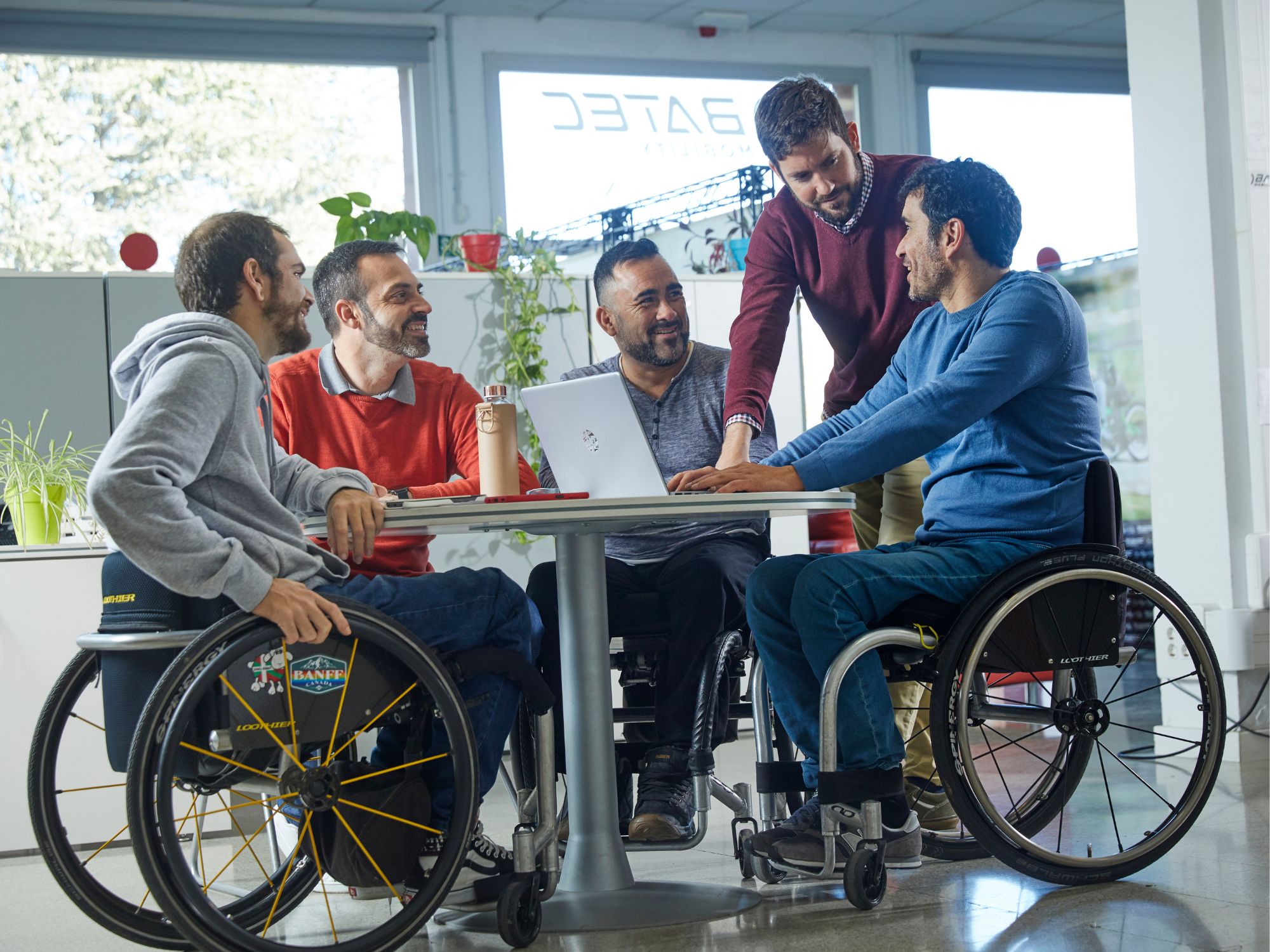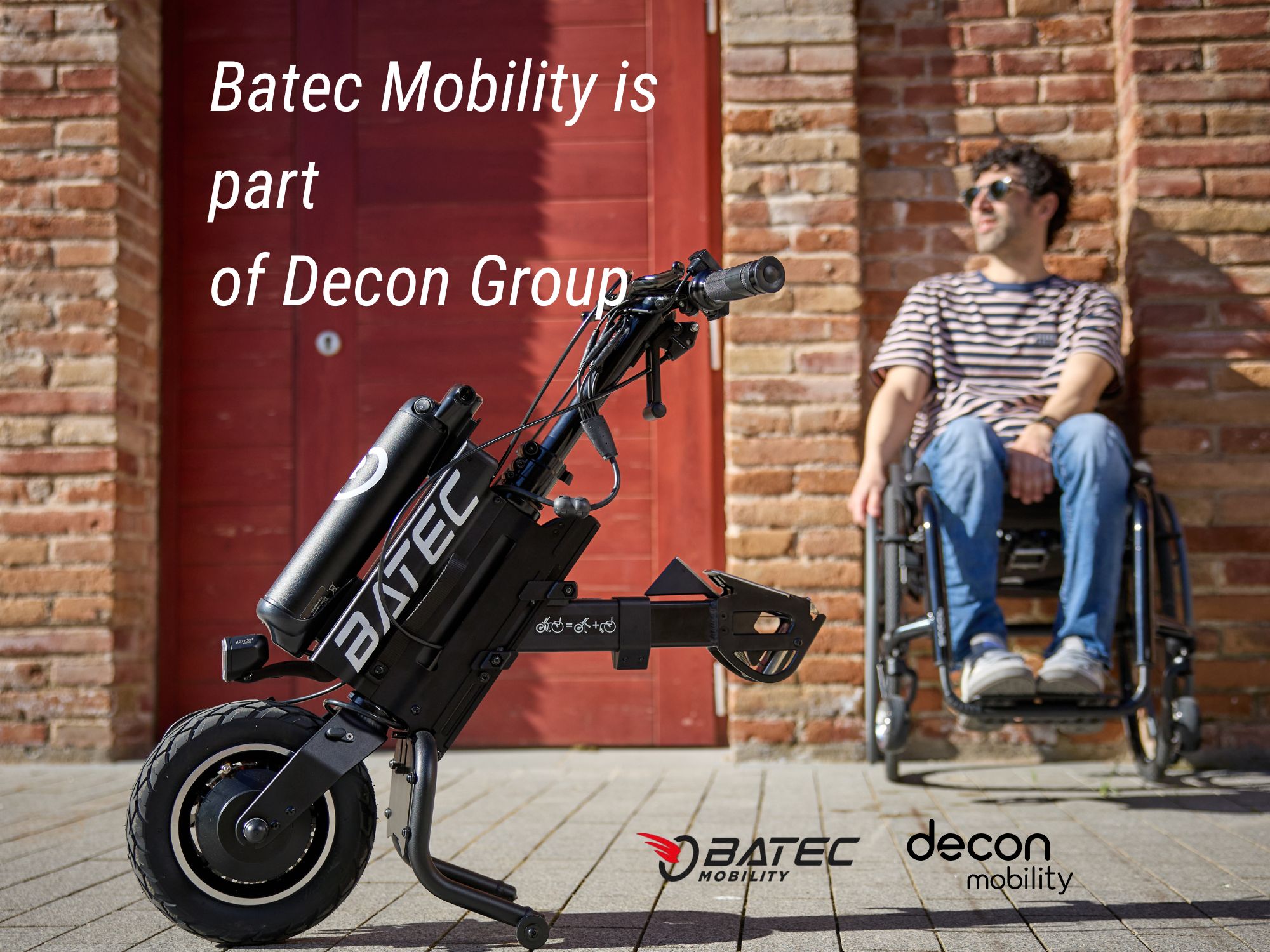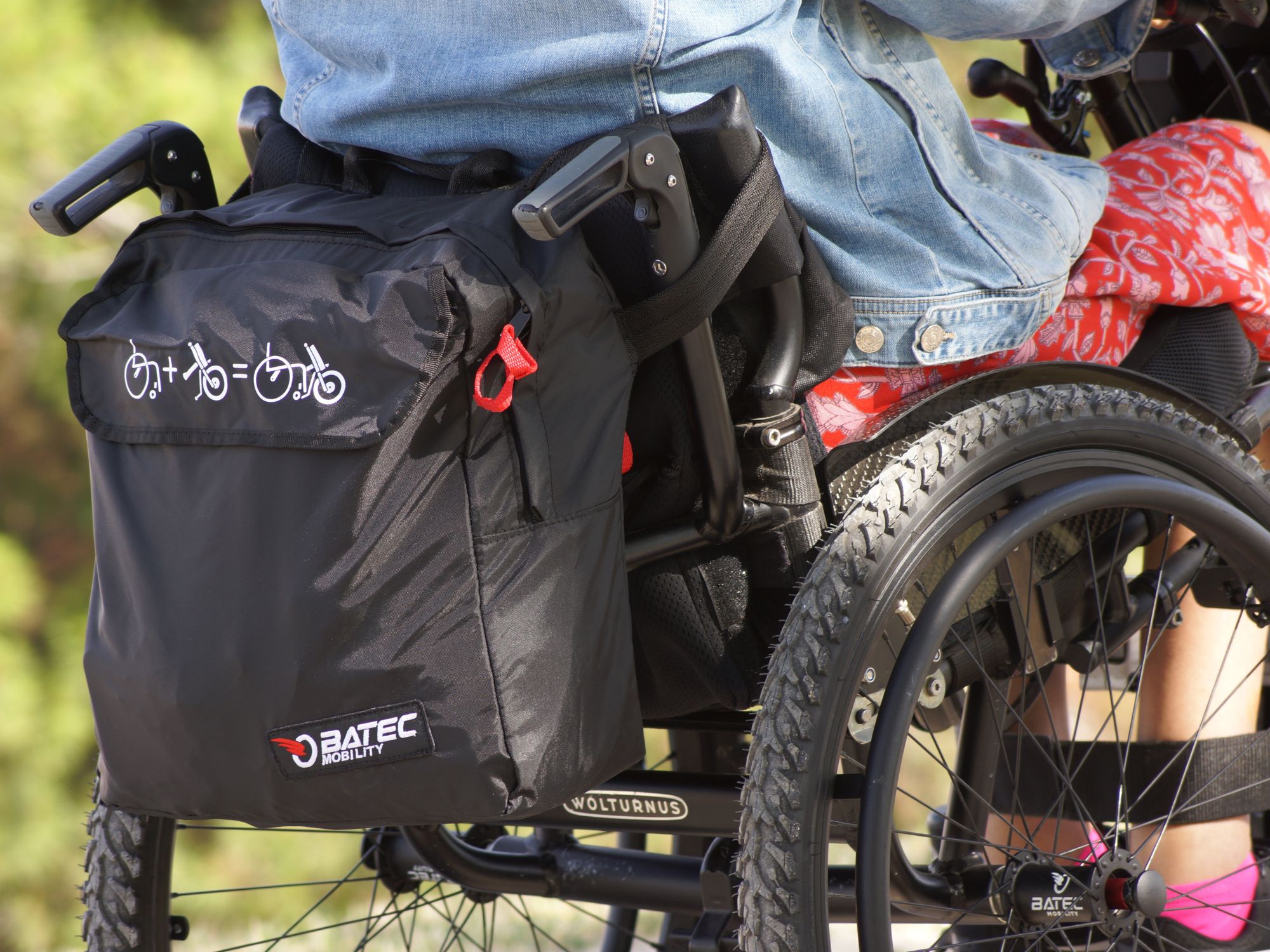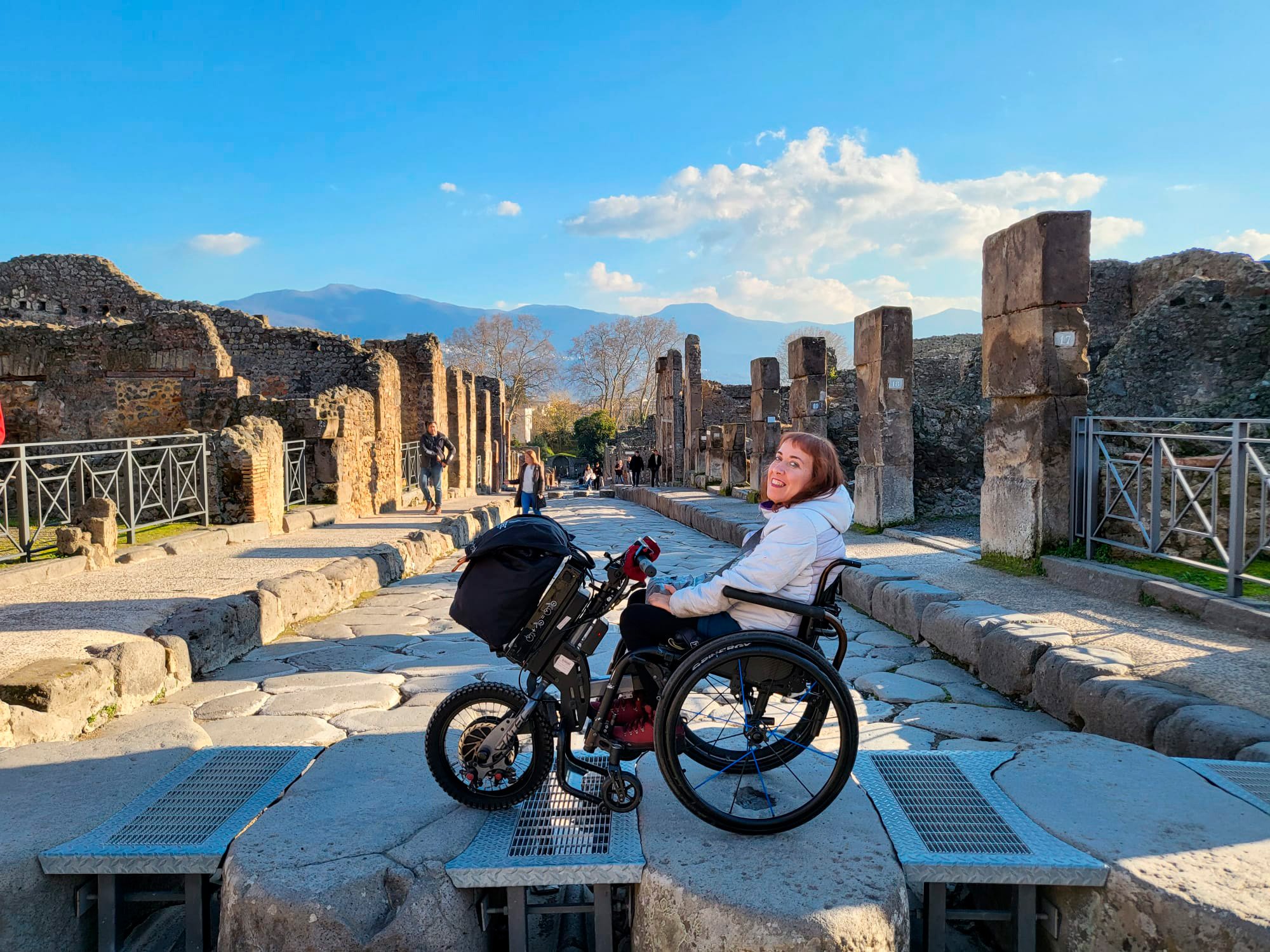Yes, the figures are stark. But the reality, as told by those who live it, speaks louder than any statistic.
Because working with a disability isn’t just possible – it’s valuable, necessary and, often, transformative. In this article, we’ll share what’s so often left unsaid: the real obstacles, yes, but also the achievements, the stories that inspire and the tools that are rewriting the rules.
Why are we still talking about workplace inclusion?
Because there’s still a long way to go. In Spain, people with disabilities make up 6.2% of the working-age population, yet their employment rate is still 40.5 percentage points lower than that of the general population. Despite having experience, qualifications and an exceptional level of commitment, opportunities remain few and far between.
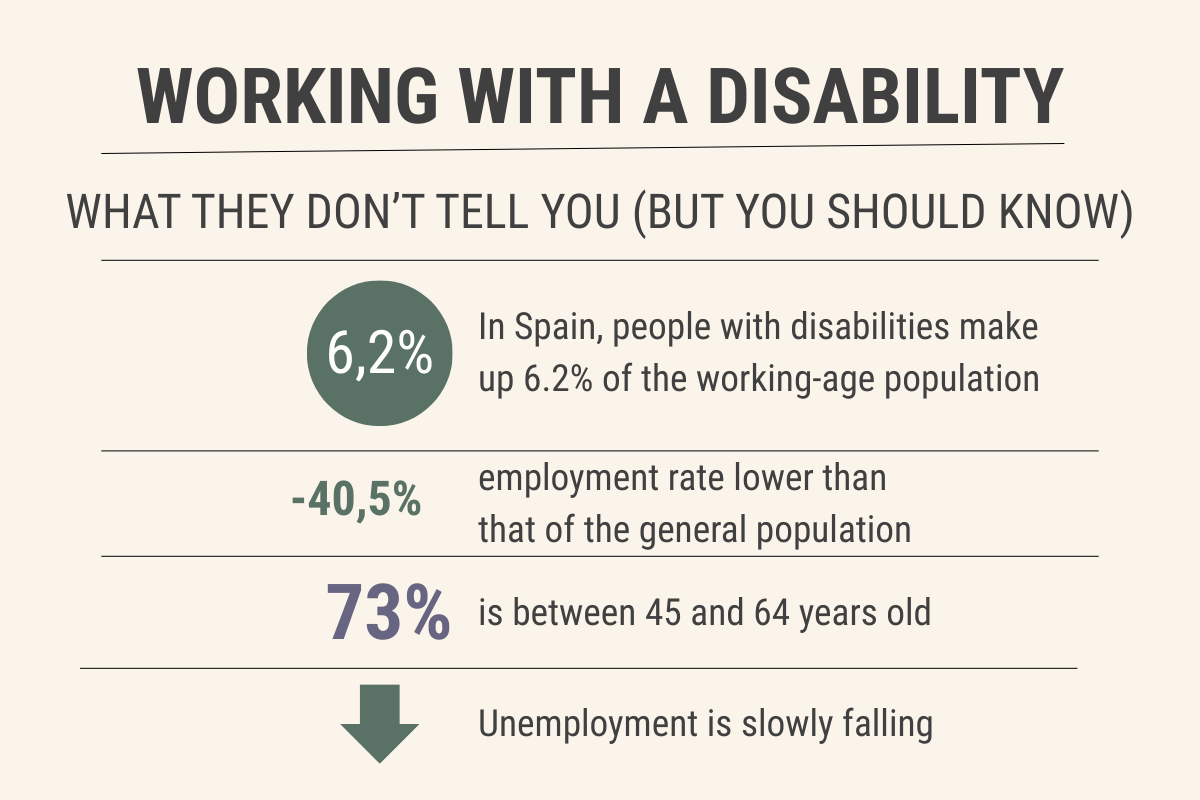
🔍 Key fact: 73% of working-age people with disabilities are between 45 and 64 years old. Experience, maturity, drive. What more does the market need to understand?
The barriers exist… but they can be broken
Although there are laws that promote equality, in practice we still encounter barriers that shouldn’t exist:
- Physical barriers: offices without ramps, inaccessible transport, toilets that cannot be used by wheelchair users.
- Technological barriers: programs that are incompatible with screen readers, software that cannot be customised.
- Mental barriers: prejudice, stereotypes and the persistent question, “Will they be able to handle this role?”
Stories that break down prejudice
There’s nothing like hearing from those who are already doing it.
⭐ Axel, web developer and tetraplegic:
I thought it would be impossible. Today, I work in a job I love, using a trackball mouse and a mechanical keyboard. I don’t need anything else.
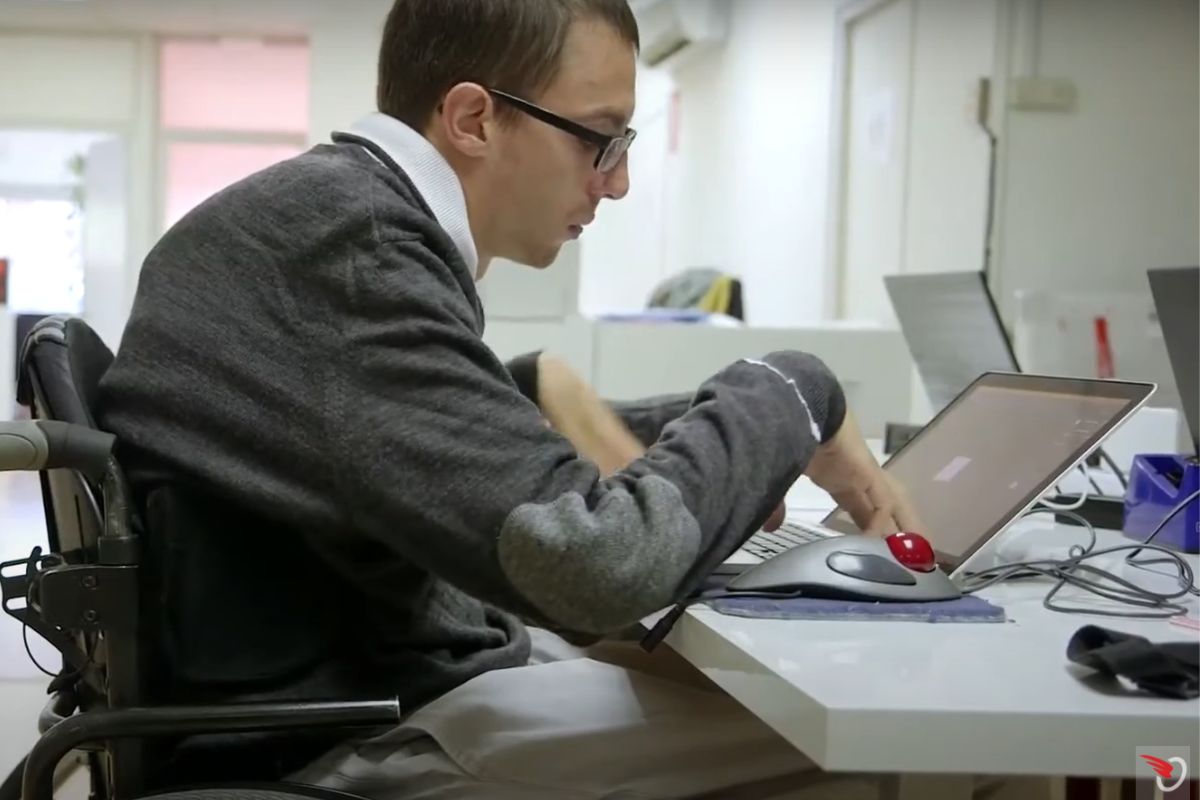
🧠 Pau Bach, founder of Batec Mobility:
Tetraplegic, yes – but also an inventor, entrepreneur, and driver of change. Pau created Batec not just to move more easily, but to change lives. Surrounded by a diverse team – many of whom also have disabilities – he now leads a company that does things differently. From the inside, and with real, lived insight.
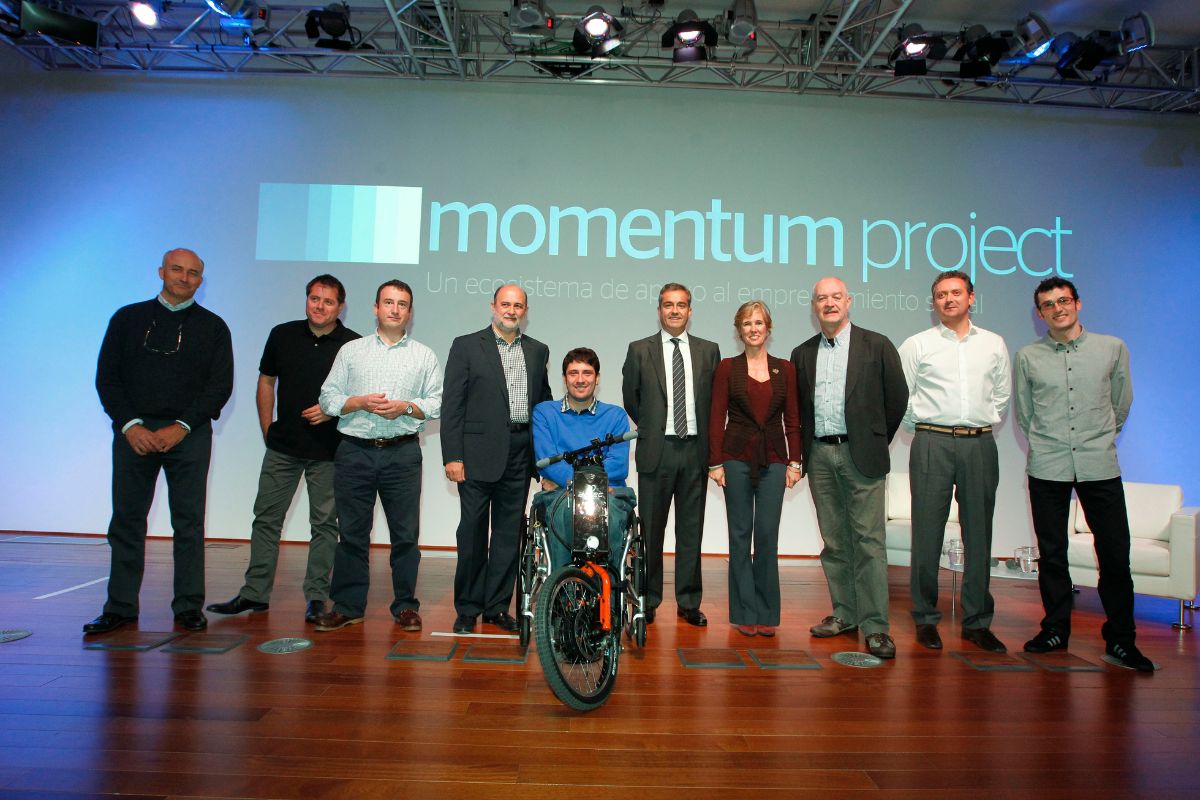
🚛 José Miguel Avellà, transport entrepreneur:
After his spinal injury, he didn’t give up. He remained at the helm of the company he had founded before the accident, proving that leadership knows no barriers.
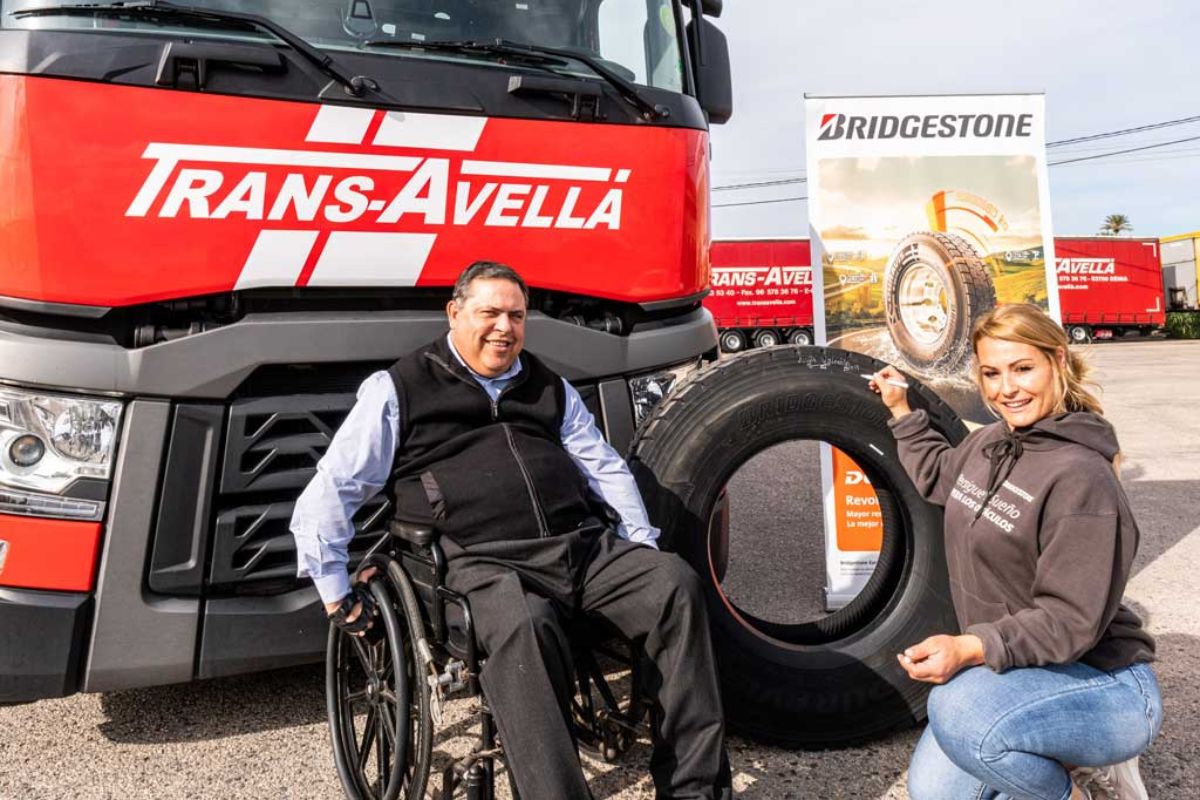
🏃♀️ Teresa Silva, founder of Fundación También:
Sport changed her life, and she decided it had to change many more. Today, her foundation brings adapted sport to thousands of people across Spain.
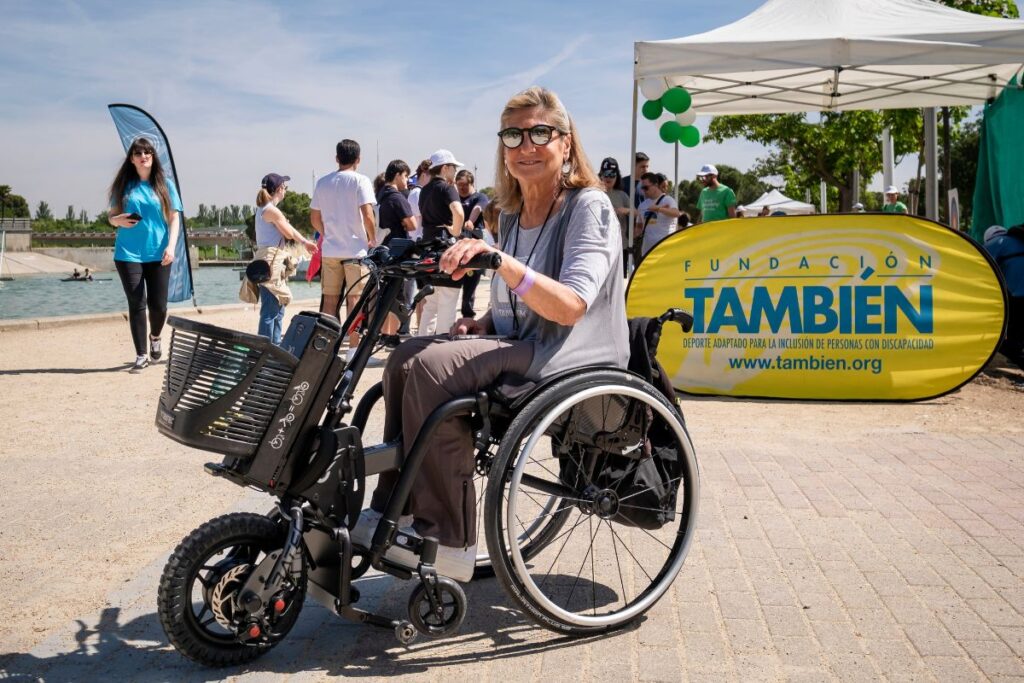
What if the path doesn’t exist? Create it
For many people, traditional employment isn’t always an option. But that doesn’t mean they stand still.
Entrepreneurship becomes a path to freedom, flexibility and self-fulfilment. Starting your own business can be the best way to create an environment that adapts to you – not the other way around.
Rights you should know (and claim)
Working with a disability shouldn’t mean having to fight twice as hard. There are specific rights that protect people with disabilities:
- Reasonable adjustments in the workplace (flexible hours, adapted tools, etc.).
- Incentives for companies that hire (yes, it benefits employers too).
- Mandatory quotas for companies with more than 50 employees.
- Access to employment programmes such as those run in Spain by Fundación ONCE, Inserta Empleo or Integralia.
Conclusion: There’s no shortage of talent – we just need to look properly
People with disabilities are not “special cases”. They are professionals. With drive, with stories, with ideas that lead to transformation. Inclusion isn’t just a matter of justice – it’s an opportunity many companies have yet to recognize.
So, if you’re a person with a disability: believe in your talent, not your labels.
If you’re an employer: stop looking at CVs through outdated filters.
And if you’re simply curious: welcome – this concerns you too.
Because inclusion isn’t a favour. It’s a necessary evolution.

